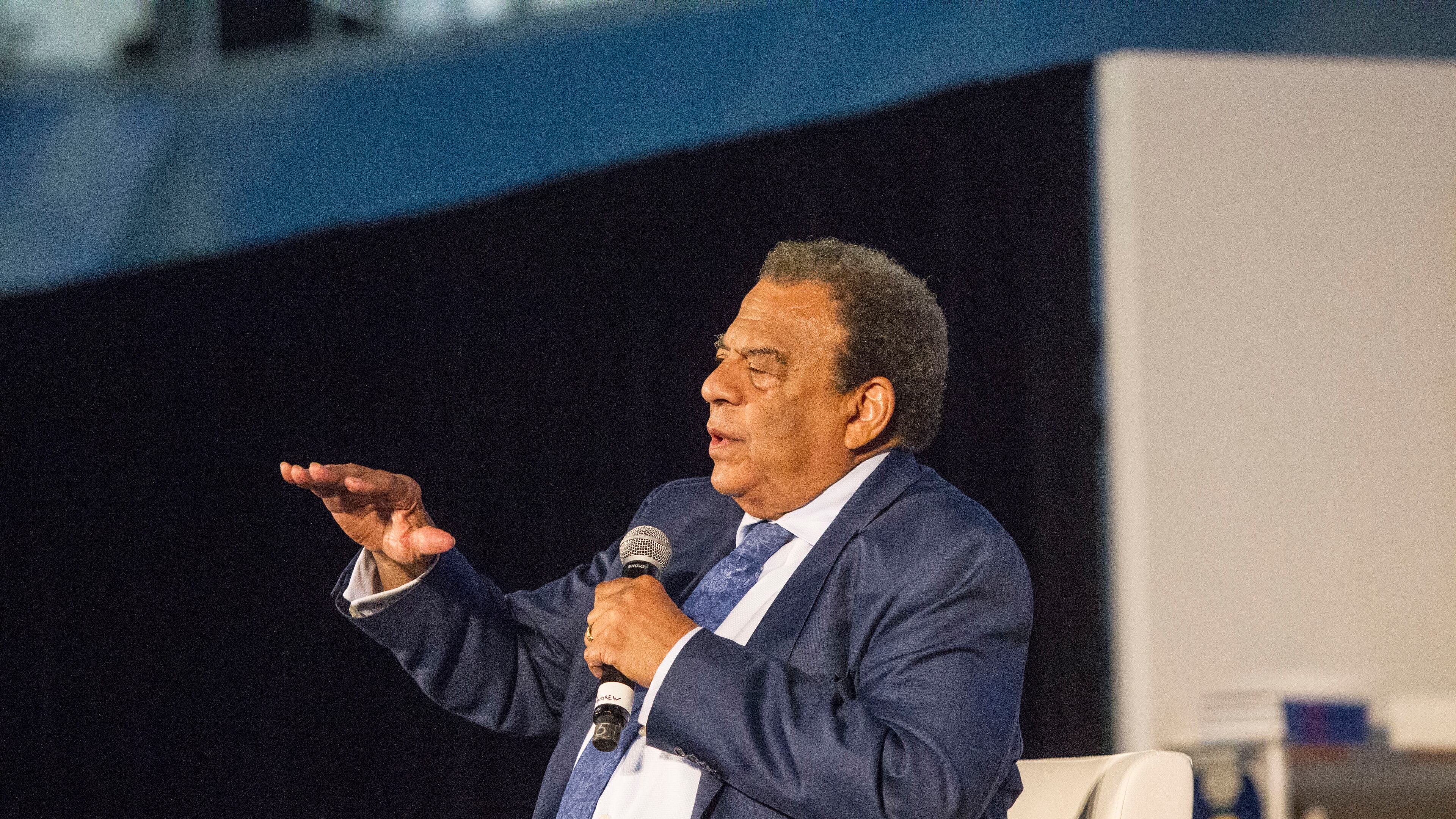Andrew Young: Fights over Confederate symbolism are 'a mistake'

Fellow civil rights veterans Andrew Young and C.T. Vivian were at Paschal's on Wednesday morning to endorse Ceasar Mitchell, the Atlanta City Council president, in this fall's race for mayor.
Before we move away from that topic, let us note that Young, the former Atlanta mayor and United Nations ambassador, said he wanted to endorse Mitchell eight years ago – but his Howard University ties to Kasim Reed trumped that impulse.
The topic of Charlottesville quickly reared its head. A New York Times writer cited laws in some states, including this one, that prevent local communities from bringing down Confederate monuments. He asked Young and Vivian if they would endorse acts of civil disobedience that targeted the statues.
The reporter probably didn't get the answer he expected from Young. Which, while he didn't mention her by name, also might have been directed at state Rep. Stacey Abrams, the Democratic candidate for governor who on Tuesday called for the massive carving of Confederate leaders to be scrubbed from Stone Mountain.
Said Young:
"I personally feel that we made a mistake in fighting over the Confederate flag here in Georgia. Or that that was an answer to the problem of the death of nine people – to take down the Confederate flag in South Carolina."
Specifically, Young was speaking of Gov. Roy Barnes’ decision to pull down the 1956 state flag that prominently featured the Confederate battle emblem. The move was a primary reason he lost his bid for re-election, split the state Democratic party, and ushered in the current season of Republican rule. Said Young:
"It cost of us the health of our city because we were prepared to build a Northern Arc, 65 miles away from the center of the city of Atlanta – an outer perimeter that would have been up and running now, if we had not been fighting over the flag.
"I am always interested in substance over symbols. If the truth be known, we've had as much agony – but also glory, under the United States flag. That flew over segregated America. It flew over slavery…."
Young also had some advice for the “antifa” movement. Boiled down: If you haven’t seen Nazis and Klansmen in the streets before, perhaps it’s because you haven’t been paying attention. We’ve been here before. Said Young:
"In 1936.
"And my daddy said, those are sick people. They're white supremacists, and white supremacy is a sickness. You don't get mad, you get smart. You never get angry with sick people, because you'll catch their sickness. That's what I worry about with our young people. Anger and this emotional militancy will give you ulcers, give you heart attacks.
"Don't get mad, get smart. Your brain is the most important thing you have."
Confrontation doesn’t change mind. Engagement does, Young said. During the press conference, Mitchell had said much the same thing:
"With that being said, we've got to find a pathway to reconciliation."
Afterwards, I approached Mitchell about the petition that had been presented to Mayor Kasim Reed, demanding the renaming of Confederate Avenue in the Grant Park neighborhood of Atlanta. Said Mitchell:
"We have a complicated history as a country, in the South and certainly in Atlanta. There's so much good and bad intertwined and tangled together. We need to be able to untangle the good and the bad, get rid of the bad, and make it part of the past."
In other words, no slicing the baby in two.
RELATED

